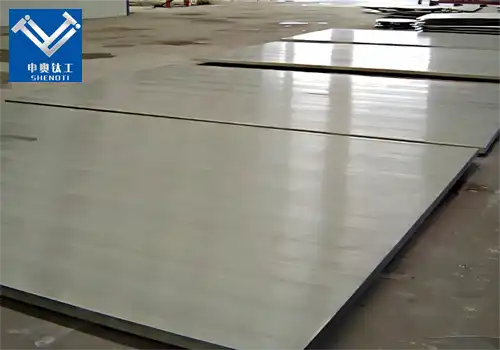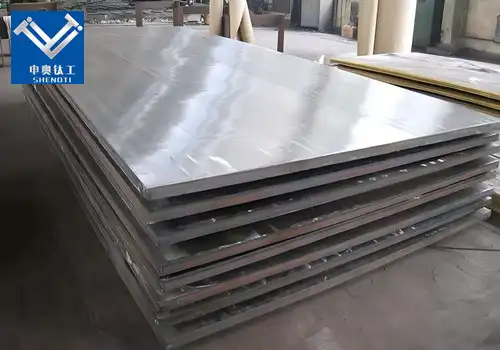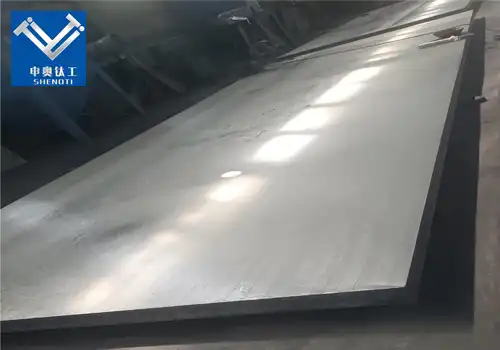
In Which Industries Are Titanium Nickel Clad Plates Mainly Used?
2025-04-26 11:12:34
In Which Industries Are Titanium Nickel Clad Plates Mainly Used?
Titanium nickel clad plates are advanced composite materials that combine the exceptional properties of titanium and nickel. These plates are engineered to offer superior corrosion resistance, high strength, and excellent thermal conductivity, making them indispensable in various demanding industries.
What Are the Primary Applications of Titanium Nickel Clad Plates?
1. Petrochemical Industry
In the petrochemical sector, equipment is often exposed to harsh environments involving acids, alkalis, and high temperatures. Titanium nickel clad plates are extensively used in constructing reactors, heat exchangers, and distillation columns due to their remarkable corrosion resistance and mechanical strength. The titanium layer offers excellent resistance to corrosive substances, while the nickel layer enhances structural integrity, ensuring longevity and safety in operations.
2. Power Generation
Power plants, especially those utilizing fossil fuels, require materials that can withstand high temperatures and corrosive flue gases. Titanium nickel clad plates are employed in heat exchangers, condensers, and flue gas desulfurization units. Their ability to resist corrosion and maintain structural stability under thermal stress makes them ideal for such applications.
3. Desalination and Marine Engineering
The desalination process involves exposure to saline water, which is highly corrosive. Titanium nickel clad plates are used in evaporators and heat exchangers within desalination plants due to their superior resistance to seawater corrosion. In marine engineering, these plates are utilized in constructing ship components and offshore structures, offering durability and resistance to the harsh marine environment.
4. Chemical Processing
Chemical plants deal with various corrosive substances, necessitating materials that can endure such conditions. Titanium nickel clad plates are used in fabricating vessels, piping systems, and heat exchangers in chemical processing industries. Their corrosion resistance ensures the integrity of equipment and safety in chemical handling.
5. Aerospace and Defense
In aerospace applications, materials must be lightweight yet strong and resistant to extreme conditions. Titanium nickel clad plates are used in manufacturing aircraft components, including structural parts and engine components, due to their high strength-to-weight ratio and resistance to high temperatures and corrosion.
How Do Titanium Nickel Clad Plates Compare to Aluminum Clad Plates?
While both titanium nickel and aluminum clad plates are used in various industries, their applications differ based on their properties.
Corrosion Resistance: Titanium nickel clad plates offer superior corrosion resistance compared to aluminum clad plates, making them suitable for highly corrosive environments like chemical processing and marine applications.
Strength and Durability: Titanium nickel clad plates have higher strength and durability, essential for applications involving high pressure and temperature. Aluminum clad plates, while lighter, may not provide the same level of structural integrity in such conditions.
Weight Considerations: Aluminum clad plates are lighter, making them preferable in applications where weight reduction is critical, such as in automotive and aerospace industries.
Cost: Aluminum clad plates are generally more cost-effective, making them suitable for applications where budget constraints are a factor, and extreme corrosion resistance is not required.
What Are the Advantages of Using Titanium Nickel Clad Plates?
Enhanced Corrosion Resistance: The combination of titanium and nickel provides exceptional resistance to various corrosive agents, extending the lifespan of equipment.
High Strength and Structural Integrity: These clad plates maintain their strength under high temperatures and pressures, ensuring safety and reliability in critical applications.
Cost-Effectiveness: By combining two metals, titanium nickel clad plates offer the benefits of both materials while optimizing costs compared to using solid titanium or nickel components.
Versatility: Their unique properties make them suitable for a wide range of industries, including petrochemical, power generation, marine, chemical processing, and aerospace.
How Are Titanium Nickel Clad Plates Manufactured?
Titanium nickel clad plates are typically produced through explosive bonding, a process that uses controlled explosive energy to bond the two metals at the molecular level. This method ensures a strong, uniform bond without altering the individual properties of the metals. The resulting clad plate exhibits the corrosion resistance of titanium and the strength of nickel, making it ideal for demanding applications.
Contact Us
For more information on titanium nickel clad plates and how they can benefit your specific applications, please contact us at:
Email: zh@baojiti.com.cn
Our team of experts is ready to assist you in selecting the right materials for your needs.














